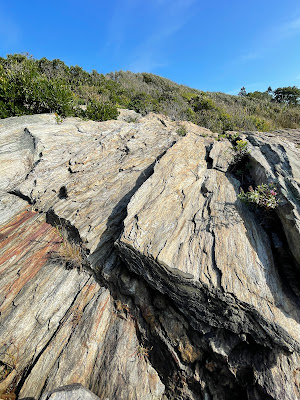Jan 8, 2022.
I am;
But
I wish to be.
So often we hear the words, "I am — I wish to be" as I am and I wish to be. Yet there’s a different way to read this.
As I sit here this morning at 5 a.m., on a cold morning of 21°F, I’ve already been awake for an hour. Our black cat Marlowe, who has perhaps one single white hair somewhere on his body, woke me up at 4 AM expecting to be fed. This isn't uncommon with Marlowe; like many cats, he lives strictly on his own time and no one else's.
There is snow across the land; and in the darkness of the silence, a presence hovers.
Because we've been back in the office, I haven't been sitting in the morning and writing the way I used to during the Covid lockdown. Yet for the last three weeks, because of the surge in the omicron variant, we've been working from home again and it has brought me back to this practice, at least temporarily.
The situation reminds me of how much life is filled with "I am." I am this, I am that. This and that must be done. Everything gets a name; and everything is urgent. But all of these everythings that are named are an outward everything; and everything that is urgent is an outward urgency.
The inward life is different, much more vital; and yet so oddly, so easily forgotten.
So there are two “I “Ams.” One of them is made of the world in its outward forms; the other is made of myself as I live and breathe, in this body, a creature of the immediate moment that forms other things in its mind.
When I lie awake in bed for an hour in the morning, developing a close and molecular intimacy with myself, my sensation, my breathing, "I am" not of the outward world and all the things that supposedly make me who and what I am. There's a paradox afoot here: the closer I get to myself, the more intimate I become with my molecular being, the closer I am to God. Yet this "I am" that I grow close to is not of myself.
It is in a certain sense a denial of everything "I am" —a rejection of the form and the naming of things in favor of a simple closeness to Being. Wishing to be, in this very real sense, is the alternative to the "I am" of the world.
So there are two of me. And perhaps this means that the formulation "I am—I wish to be" was misunderstood, is misunderstood, will always be misunderstood by the part of me that "is" – that is formed by all of these things of the world which I "believe" to be me. I am and I wish to be are not at all the same thing.
When I sacrifice the world in favor of this intimacy that brings me closer to the self and God, I sacrifice the names and places.
I sacrifice the deeds and histories.
I sacrifice the desires and urges, the lust for myself.
Now I am alone; I have abandoned myself.
And it is in this very abandonment of myself that I discover myself. When I cease to be what "I am,” only then can I Be. I need to Be first—before the names and places, before the deeds and the histories.
There is a movement from I am into the wish to be. The first is of the present; the second is a hope for the future, an aspiration to manifest evermore steadfastly under the steady and unrelenting gaze of the unknown. I say relentless because the unknown presses down upon the known with all the weight that the endless future gives it. It presses what is known down into a two dimensional surface, a flat place; the unknown is where the third dimension of everything arises. What is known, in other words, is all of selfishness; and the unselfish self, the self of God, lies forever on the other side of this "I am."
I must go there; it is my home.
Yet I am a traveler that has to leave all his bags behind and set out without a ticket. I'm given no schedules. There's no list of destinations. I need to have the courage to not know myself anymore in order to become known.
The Love of God is in this.
These are my thoughts for this morning.
with warm regards,
Lee
Lee van Laer is a Senior Editor at Parabola magazine.












